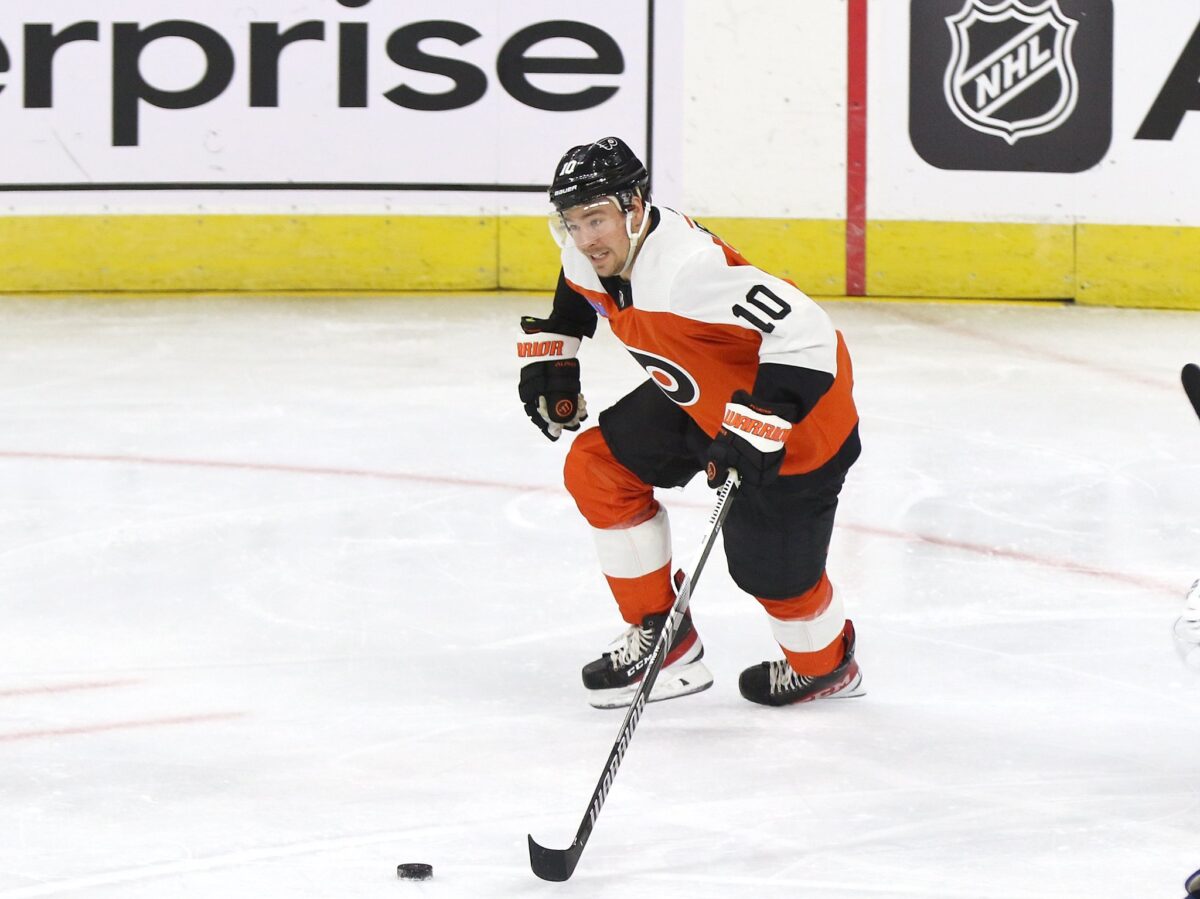The rebuilding Philadelphia Flyers have the highest cap hit of any NHL team entering the 2024-25 season via CapFriendly, but that should come with a major asterisk. They can make moves—some easier than others—to gain some financial freedom in the offseason and better their future. How exactly can they do that, and what can they theoretically do with this excess cap space?
LTIR Can Save the Flyers Money
While the Flyers technically have an $87.2 million cap hit (99.4 percent of the league-maximum $87.7 million ceiling), long-term injured reserve (LTIR) will be their friend. Putting players on LTIR can inflict overage charges the following season that can take away cap space, but they are typically pretty minimal. Using this method, the Flyers can save a sizeable amount of cap space for 2024-25 and allow themselves to make some moves.
Carrying a $6.25 million cap hit, Ryan Ellis is essentially retired at this point. He hasn’t played a hockey game since Nov. 13, 2021, and has shown no indication that he intends to return. With three years still left on his contract, he won’t be off the books for quite a while. Placing him on LTIR would give the Flyers $6.8 million to spend.
As well, Ryan Johansen—acquired at the trade deadline—has a somewhat similar situation. With a $4 million cap hit and on the last season of his deal, he is going through some injury trouble and might not be able to play a single game with the Flyers. During his end-of-season press conference, general manager (GM) Danny Briere said that he really had no idea of whether or not the 31-year-old center would be ready to play in 2024-25.
If worst comes to worst, Johansen’s cap hit can be buried in the American Hockey League (AHL) and leave the Flyers with $7.9 million in savings. If his injury doesn’t allow him to play, the most likely scenario is that he is put on LTIR. If that does end up being the case, it would give the Flyers $10.8 million to spend.
Potential Flyer Buyouts & Trades
On top of the $10.8 million the Flyers can free, they can also make a few moves to get even more money to spend. A Cam Atkinson buyout seems like the most logical thing to do at this stage, given he had a pretty awful season with the Orange and Black in 2023-24 and he is 34 years of age. This would give Philadelphia $14.3 million in cap space with 11 forwards, five defensemen, and two goaltenders on the likely opening roster under contract, putting them in a solid spot.
Related: Philadelphia Flyers 2023-24 Player Grades: Cam Atkinson
Buying out AHL netminder Cal Petersen’s contract might be overdoing it a tad, but it would give the Flyers $17.1 million in cap space. With goaltender Alexei Kolosov now in the AHL with the Lehigh Valley Phantoms, it wouldn’t exactly be a bad choice to get rid of Petersen’s contract.
Of course, any big trades would do a lot for the Flyers, too. Travis Konecny, Rasmus Ristolainen, and Joel Farabee are all making at least $5 million and could be traded during the offseason. If any of them were, Philadelphia would have more cap space than they could make use of. Their salary situation looks bad on the surface, but it really isn’t whatsoever.
How the Flyers Can Utilize Their Cap Space
The Flyers still have restricted free agents (RFAs) to sign and roster spots to fill in the 2024 offseason, so they aren’t exactly in the clear. Among those, there are three who could realistically make the team: Bobby Brink, Adam Ginning, and Egor Zamula. If all of them are brought back, that would leave Philadelphia with 21 of 23 possible roster spots if only Atkinson were bought out.

Projecting their deals, it is very unlikely for any of them to break the bank. If they all sign short-term contracts, none of them should exceed a $3 million cap hit, especially since no Flyer RFA did in the 2023 offseason, either. Give or take, the Flyers should spend $5 million on all of their deals combined.
With only Atkinson and 37-year-old Marc Staal not returning to their main post-trade-deadline lineup in this hypothetical, they’d have $12.1 million to add essentially any player in the NHL. Going 38-33-11 in 2023-24 with virtually the same team, the Flyers would be in a spot to potentially make the postseason if they aren’t fans of going the traditional rebuilding path.
A player like 25-year-old Martin Necas is an RFA this summer, so he’d be an intriguing piece to bring to Philadelphia. Additionally, young centers like Trevor Zegras, Marco Rossi, and Anton Lundell could all be potential targets if the price is right. It might seem like the Flyers are restricted, but they can do essentially whatever they please.
If the Flyers want to take on a cap dump and acquire a draft pick for such, they can. If they want to go completely off the walls and sign one of the big-name free agents like Jake Guentzel or Sam Reinhart, they have the money to do it. Rest assured, their options are endless.